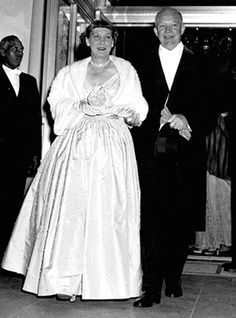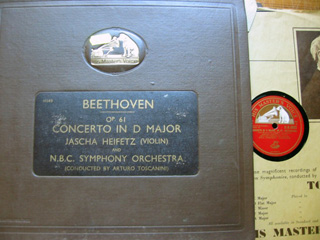
Shop area, Heerlen, 1945
It took more than a month to get the Germans out of the bulge.
Because General Bradley had guessed wrong and chose ammunition before winter wear, our boots were inadequate. Special units like the paratroopers had waterproof footwear, but our standard GI shoes were porous. A frostbite deadened two toes and the bottom of my soles for the rest of my life. Standing in a damp foxhole for days led to a more dangerous condition called trench foot: first the skin turns blue, and then becomes mottled like marble. Left untreated, the flesh rots away.
To avoid wet feet I tied two pairs of socks together and hung them around my neck. Whenever I could I changed. Body heat would help, but by spreading the socks over a heated empty helmet I could dry them.
A soldier’s helmet was his cooking pot. A small fire under an overturned steel hat could heat water and rations. The blaze burned off the paint. The underlying blue steel was exposed with a black carbon overlay.
There have been a number of movies about the Battle of the Bulge, but I have never seen one with soldiers wearing helmets with the black and blue steel exposed.
After six weeks of battle we were filthy. I wore a blanket I had turned into a poncho by slitting a hole with my bayonet. If I had to move faster the blanket was removed. We wore two or three undershirts, a wool sweater, two shirts and a combat jacket. In time I smelled offensively. I tried not to notice myself.
Once out of combat we were trucked to the showers and soaped down thirty at a time. Clean clothing was issued, but not new helmets. They were black and blue pots of honor, not to be repainted. Blue badges of courage.
We washed up in a small mining town in Holland named Heerlen. Before the war the owners had installed shower heads in an open gallery for the miners. We were permitted only three minutes under the hot water.
I was billeted in a Dutch home, supposedly for a single night that stretched two weeks. Mother, father, and an ill, emaciated four-year-old boy were my hosts. There was almost nothing in the kitchen.
Heerlen is in the province of Limburg, pinched off by Germany on one side and Belgium on the other. The food supply was meager and the family was hungry. The next day American cooks set up a chow line for our troops. The servers slopped food into our mess kits and I carried refills back to the family.
It wasn’t enough food for three.
I didn’t know the mess sergeant who managed the food supplies, but I knew rear echelon soldiers liked battle souvenirs. I had picked up a German Walther P38 in bad shape and I offered it to the man in charge.
I said, “I need food for the family I’m staying with.”
He answered, “I never look at the ration boxes behind the tent until after breakfast. Nobody is counting. Get there before breakfast. Don’t be there when the chow line is moving. I don’t know you. And do you have some cartridges for the gun?”
In the mid-afternoon of the second day I stole two cases of ten-in-one rations. Ten separate containers of food were in each box. I brought them to the kitchen. I did the same for three or four days.
I persuaded a non-com medic to see the sick boy. He gave him pills to stop the diarrhea and put a bandage on a bad knee.
The father and mother were grateful. Too much so, it turned out.
I lived in a bedroom on the first floor, across from the kitchen. The husband and wife and child slept upstairs.
I think they talked things over before he did it.
I arrived one afternoon with another food bundle and put it on the table. The door was open to my bedroom, and I started for it. The husband made a sound, and I turned around. He looked at his wife, and then gestured her toward my bedroom. That’s how grateful they were. He offered her to me.
It was embarrassing for all. She was pretty and I was deprived. But I couldn’t do it. I shook my head and smiled myself away.
The father felt a sense of obligation. His problem was thankfulness.
I had to find some way to relieve their gratitude.
The next day the husband and I went to a local billiard hall. I learned billiards (not pool) at the Student Union at the University of Wisconsin. I wasn’t very good, but the nicest part was teaching Margie Ann and her friends how to hold a cue properly. I stood behind them and coached them from the rear. That’s the only way you can illustrate how to have a proper bridge in the left hand, while balancing the cue in the right. Snuggling girls is what I like most about straight-line billiards.
The pool hall in Heerlen had just two tables, covered in worn green baize. It must have been a favorite place for the husband, the out-of-work miner. I could see he was a better player than I.
I was inept. He was excellent but had to hide his skill. He wanted to throw the games. I pretended not to notice. It took some time before I was able to beat him. We played another game, and I beat him again. I bought two beers and we left. The debt of gratitude he owed me was partially paid.
I left for Germany two days later. The parting was formal. He shook my hand. I shook the hand of the boy. I shook the limp hand of the wife. Her eyes looked away.
Image
Shop area, Heerlen, 1945; WWII Tracings, Sharing the Stories of the Men of the 111th Ordnance Company (MM); https://wwiitracings.wordpress.com/2013/09/24/a-cold-winter-in-heerlen-holland/
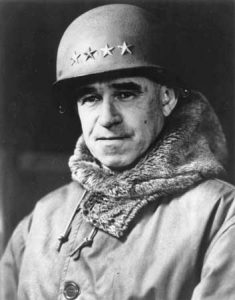
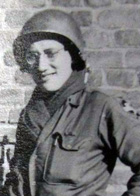
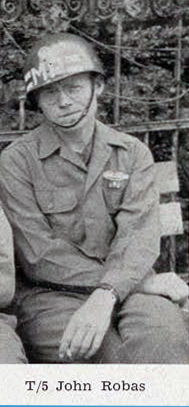
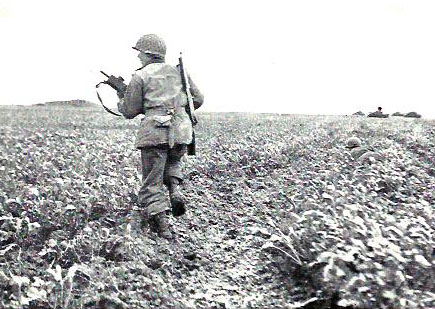
 I was the Chief Musical Producer at WBBM from 1948 – 1950. The musicians union required that WBBM keep forty full-time musicians on staff. Because I could read an abbreviated score, I became a pet of the musical conductor, Caesar Petrillo, brother of James Petrillo, the head of the American Federation of Musicians. Caesar had been a former trombone player in a circus orchestra and he favored large brass sections. The house orchestrations were written for seven brass and only eight string instruments. The bows were overwhelmed in tutti passages.
I was the Chief Musical Producer at WBBM from 1948 – 1950. The musicians union required that WBBM keep forty full-time musicians on staff. Because I could read an abbreviated score, I became a pet of the musical conductor, Caesar Petrillo, brother of James Petrillo, the head of the American Federation of Musicians. Caesar had been a former trombone player in a circus orchestra and he favored large brass sections. The house orchestrations were written for seven brass and only eight string instruments. The bows were overwhelmed in tutti passages.
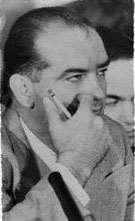
 They did. Clouds, airplanes in the landing pattern at Midway. A delegate sleeping, his face hidden behind a newspaper, the curious intersections of telephone lines, and a streetcar rushing by. A homeless man, in tight close up. The sort of montage that in later years would be called video art. The montage included a delegate on the floor heating a hotdog on a portable Sterno can. The Speaker of the House saw my montage on a black and white monitor backstage.
They did. Clouds, airplanes in the landing pattern at Midway. A delegate sleeping, his face hidden behind a newspaper, the curious intersections of telephone lines, and a streetcar rushing by. A homeless man, in tight close up. The sort of montage that in later years would be called video art. The montage included a delegate on the floor heating a hotdog on a portable Sterno can. The Speaker of the House saw my montage on a black and white monitor backstage. Senator Robert Taft of Ohio was a political conservative whose positions came to him by respected economists. According to party rules, he should have won because he had the majority of delegates pledged to him, but Dwight Eisenhower’s appearance on-screen caused a revolt among Republican voters.
Senator Robert Taft of Ohio was a political conservative whose positions came to him by respected economists. According to party rules, he should have won because he had the majority of delegates pledged to him, but Dwight Eisenhower’s appearance on-screen caused a revolt among Republican voters.